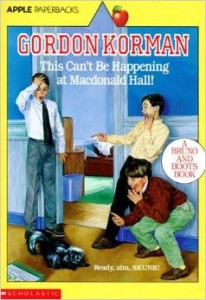 East of Toronto, just off Highway 48, you will find a beautiful tree-lined campus right across the road from the famous Miss Scrimmage’s Finishing School for Young Ladies. It is Macdonald Hall, where generations of boys have been educated and prepared for manhood. Named for Sir John A. Macdonald, the Hall, with its ivy-covered stone buildings and beautiful rolling lawns, is the most respected boarding school for boys in all of Canada.
East of Toronto, just off Highway 48, you will find a beautiful tree-lined campus right across the road from the famous Miss Scrimmage’s Finishing School for Young Ladies. It is Macdonald Hall, where generations of boys have been educated and prepared for manhood. Named for Sir John A. Macdonald, the Hall, with its ivy-covered stone buildings and beautiful rolling lawns, is the most respected boarding school for boys in all of Canada.
Okay, so here’s how the story goes. While in the seventh grade, Gordon Korman’s English teacher (“Mr. Hamilton,” according to Wikipedia, and the first book’s dedication) assigned his students to write a short novel. Putting aside how ambitious and insane such an assignment would be, the result was Korman’s very first attempt at a novel—This Can’t Be Happening at Macdonald Hall—which was subsequently published in 1978 by Scholastic Books. Korman was only twelve years old when he wrote it, and fourteen when it got published.
Hold the phone. Did you catch that? He was twelve and got published on his first attempt. Is anybody else feeling inadequate? I sure am. By the time of his graduation from high school, Korman had written another five books. Holy crow. Eighty-five books later, here we are, in 2014, and I’m going all the way back to the beginning of Korman’s career to tell you about a series of young adult novels that absolutely changed my life—the Macdonald Hall series, alternatively known as “Bruno and Boots,” for the two protagonists.
These books flood me with overwhelming nostalgia. When Greg Little announced that this month would be dedicated to unknown books, I knew immediately that I had to write about Macdonald Hall. I subsequently jumped onto my Kindle, eager to buy ebook editions of all seven books in the series. Well, guess what? They’re not there. I couldn’t believe it.
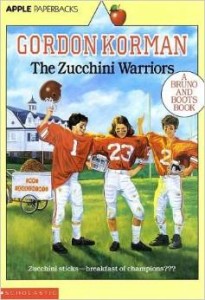 Fortunately, I had five of the seven books (along with a bunch of other favourite Korman reads) in an old box in my storage room that I hadn’t opened in a few years. I began to devour them.
Fortunately, I had five of the seven books (along with a bunch of other favourite Korman reads) in an old box in my storage room that I hadn’t opened in a few years. I began to devour them.
I realize I’ve now written some three hundred words and haven’t managed to say anything about the books except “They’re awesome; no, seriously, they’re really that awesome.” Which makes for a pretty lousy endorsement, so here are some details.
I began this post with the first paragraph from Korman’s premiere novel, and it sets the stage for all the hijinks that follow. The setting is Macdonald Hall, a boarding school on the outskirts of Toronto, and just across the street is an accompanying boarding school for girls, Miss Scrimmage’s Finishing School for Young Ladies, an ironic and misleadingly quaint name. Indeed, these unruly girls figure prominently into each story, and they are beyond delightful—and nowhere near “finished.”
The titular characters, Bruno and Boots, are roommates in Dormitory 3, Room 306—a.k.a. central headquarters for a lot of shenanigans. Bruno Walton is a passionate troublemaker with a penchant for letting (nay, encouraging) his many elaborate schemes get out of control. Boots O’Neal is the classic straight man, a sidekick who frequently gets drawn into his best friend’s intrigues. In the course of these books, they plot the downfall of a hated new school administrator (The War with Mr. Wizzle, my personal favourite of the novels), the stratospheric rise and inevitable collapse of the Hall’s football team (The Zucchini Warriors, which presents some surprisingly interesting commentary on gender politics), the fundraising effort for a new swimming pool to avoid Boots being transferred to a new school (Go Jump in the Pool), the undermining of a Justin Bieber-like celebrity on campus to shoot a major motion picture (Macdonald Hall Goes Hollywood), among other memorable outings.
The friendships and recurring characters are beautifully developed over the progression of the series, and the prose is sophisticated enough to make me stare at the page in disbelief that a twelve-year-old could have had a hand in crafting it. As an eight-year-old reader, I fell in love with Bruno and Boots and their many cohorts. Yes, they were constantly in trouble, but they were almost always driven by noble goals. They were good kids. Flawed? Of course, but never beyond redemption.
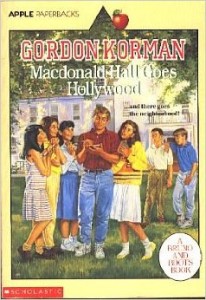 And that leads me to the thing I appreciate most about the series. I’ve reread the series twice in my twenties, and I’m in the middle of a third reread now. No surprisingly, I appreciate different things as a thirty-one-year-old than I did when I was eight. Back then, it was clear that the overarching antagonist of the series was Macdonald Hall’s stern but fair headmaster, Theodore Sturgeon (a.k.a. “The Fish”). In the character of Sturgeon, we are confronted with the heart of the series. He’s depicted as a middle-aged man with zero humor and a serious disposition—that is, as far as the boys know. In private, Korman shows us a kind and warm-hearted molder of men, not unlike the beloved Coach Taylor from Friday Night Lights. Sturgeon isn’t the antagonist all the kids at the school think he is. The reality is that he loves and cares for his students, and he has a secret affection particularly for Bruno and Boots—not despite their troublemaking ways, but because of them.
And that leads me to the thing I appreciate most about the series. I’ve reread the series twice in my twenties, and I’m in the middle of a third reread now. No surprisingly, I appreciate different things as a thirty-one-year-old than I did when I was eight. Back then, it was clear that the overarching antagonist of the series was Macdonald Hall’s stern but fair headmaster, Theodore Sturgeon (a.k.a. “The Fish”). In the character of Sturgeon, we are confronted with the heart of the series. He’s depicted as a middle-aged man with zero humor and a serious disposition—that is, as far as the boys know. In private, Korman shows us a kind and warm-hearted molder of men, not unlike the beloved Coach Taylor from Friday Night Lights. Sturgeon isn’t the antagonist all the kids at the school think he is. The reality is that he loves and cares for his students, and he has a secret affection particularly for Bruno and Boots—not despite their troublemaking ways, but because of them.
I don’t have kids, and I probably never will, barring unforeseen developments in my life. I’m okay with this reality, and it normally doesn’t bother me. The only time it does bother me is when I think of these Macdonald Hall books, and I’m filled with sadness that I don’t have anyone to pass them on to. Fortunately, my niece and nephew are about to come into reading age. Hopefully my sister won’t mind if I drop by the house each evening before bedtime to read a few chapters.

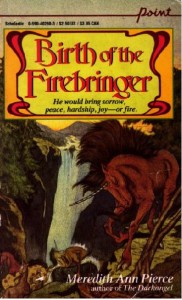
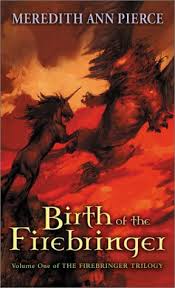
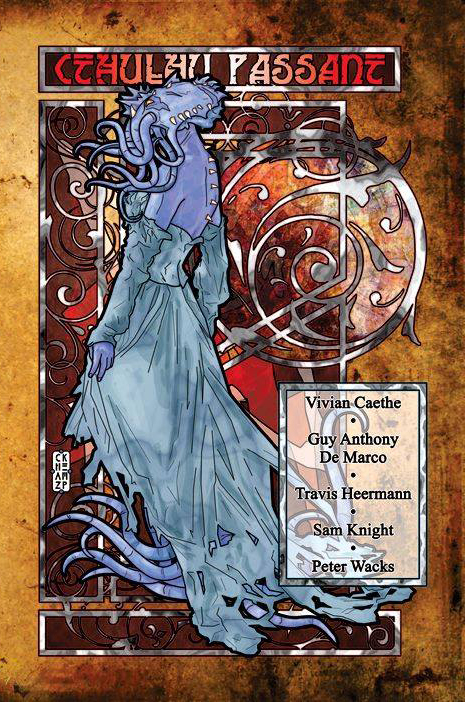
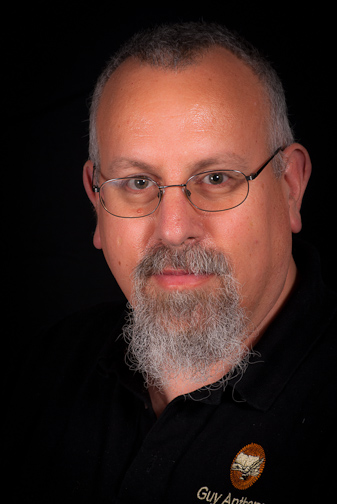 Guy Anthony De Marco is a speculative fiction author; a Graphic Novel Bram Stoker Award® finalist; winner of the HWA Silver Hammer Award; a prolific short story and flash fiction crafter; a novelist; an invisible man with superhero powers; a game writer (Sojourner Tales modules, Interface Zero 2.0 core team, D&D modules); and a coffee addict. One of these is false.A writer since 1977, Guy is a member of the following organizations: SFWA, WWA, SFPA, IAMTW, ASCAP, RMFW, NCW, HWA. He hopes to collect the rest of the letters of the alphabet one day. Additional information can be found at
Guy Anthony De Marco is a speculative fiction author; a Graphic Novel Bram Stoker Award® finalist; winner of the HWA Silver Hammer Award; a prolific short story and flash fiction crafter; a novelist; an invisible man with superhero powers; a game writer (Sojourner Tales modules, Interface Zero 2.0 core team, D&D modules); and a coffee addict. One of these is false.A writer since 1977, Guy is a member of the following organizations: SFWA, WWA, SFPA, IAMTW, ASCAP, RMFW, NCW, HWA. He hopes to collect the rest of the letters of the alphabet one day. Additional information can be found at